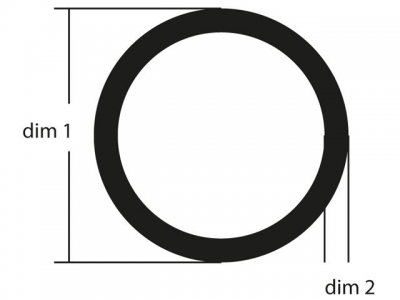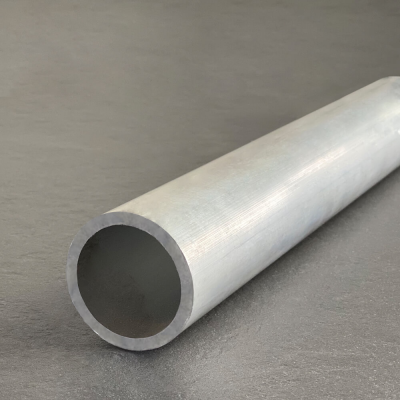Aluminium Round Tube 50 x 1.6 - I.D. 46.8mm - (EX5018)
Custom Quote
Not quite what you need? Please enter as much information as you can and we'll get back to you with a quote. This site will take you through a check out process, however you will not be charged for anything that you select.
About Aluminium Round Tubes
Aluminium round tube are widely used for all types of fabrication projects where lightweight and corrosion resistance is a primary concern. The interior is smooth with no seam. What's the difference between pipe and tube? A pipe is generally measured by inside diameter, whereas tube is measured by outside diameter.
Aluminium round tubes are commonly used in repair, maintenance, and a variety of other projects. Aluminium tubes will not rust or corrode so are ideal for a wide variety of projects in residential situations.Our round tubes range in size from 10mm up to 154.4mm with varying wall thicknesses. Customers sometimes ask why these are called "tubes" rather than "pipes". The answer is that pipes are always round shaped, and their size is measured as the inside dimension. Whereas tubes can also be square and rectangular shaped (which we sell) and their size is measured from the outer wall. Our list of sizes below, quote the inner dimension ("I.D") for your reference.
Contact us for more information about our aluminium round tube variations.Aluminium vs steel tubes - What's the difference?
In general, aluminium is lighter, easier to bend and cut and will not rust or corrode. Aluminium gets stronger as the temperature gets colder (as opposed to steel) and is three times more effective as a thermal conductor (ie for heat transfer). Steel on the other hand has higher strength and can therefore absorb more shock, stress, and deflection.
Price wise steel is cheaper, but because Aluminium is lighter than steel, you get more material per kilo. This means that more units can be produced per kilo of Aluminium than per kilo of steel. If you consider the cost of raw materials and processing, the general rule is the cost of Aluminium tubes will be slightly lower than that of steel tubes.

